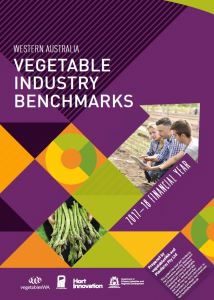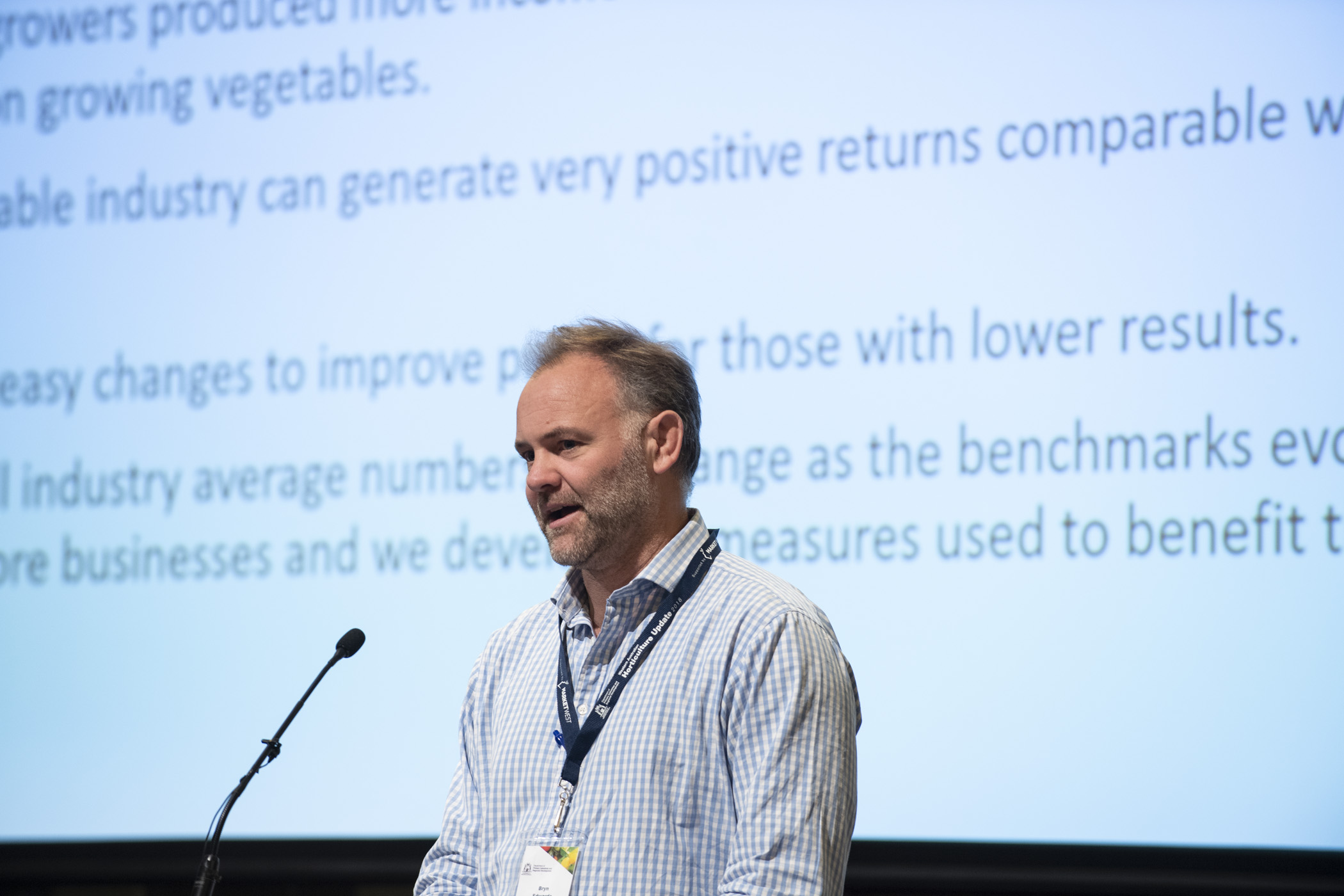Vegenotes 83: Vegetable business benchmarking
Project VG17000 was facilitated by vegetablesWA Building Horticulture Business Capacity Program Manager Bryn Edwards in partnership with Planfarm.
Major findings
Project VG17000 equipped growers with the tools to make data-driven business decisions by providing access to rigorous industry-level insights on the financial and production performance of the Western Australian vegetable industry. Project Facilitator, Bryn Edwards, said the project took its cues from a similar program used extensively in the broadacre sector.
“While primarily designed to improve the operational and financial performance of businesses, the information we have collated from the vegetable growers has also become a key source of trusted industry data for stakeholders ranging from industry bodies and state/local government to major financial institutions,” Mr Edwards said.
Vegetable production profitability became the key focal point during the engagement process, with all communications, measures and metrics linked back to this. With a three-year average return on capital of nine per cent, Project VG17000 highlighted that the WA vegetable industry is capable of generating a positive return that is comparable with any other industry or investment type. It also confirmed that the most profitable growers were not necessarily the largest producers in terms of land area utilised.
“The most profitable growers were those achieving a higher income per hectare through increased saleable yield and a strong marketing focus, while keeping costs as a percentage of income below 65 per cent; three-year average was 72 per cent while the top 25 per cent average was 59 per cent operating efficiency,” Mr Edwards explained.
Key to facilitating the project was the very ‘hands-on’ support: giving business owners a clear understanding of the data required and helping them to convert findings into tangible actions that would benefit their own businesses – for example, by lowering overheads or reducing operating costs. Participation rates grew over the three years, with the final year covering 30 per cent of WA’s sold production.
Recommendations
The most significant challenge to project progress was that the assumed base levels of business and financial management maturity were overestimated.
“While the participants’ skills and knowledge improved – particularly for growers who participated throughout the project life span – there was a disparity between those who engaged with the project and many of those that didn’t,” Mr Edwards said.
Funding has since been allocated to a new project, Building Business Horticulture Capacity, which aims to provide additional tailored business capacity training to individual growers over the next four years.
“Looking ahead, there is also an opportunity to review and broaden the lines of enquiry beyond farm profitability, to gain more detailed industry insights to inform broader risk and opportunity management – for example, labour and water use as well as natural capital and biosecurity measures,” Mr Edwards said.
Facilitators also recommend capitalising on the Project VG17000 momentum by extending it to reach a tipping point of industry-wide management change that will install benchmarking and a more detailed data-driven decision-making practise as part of ‘business as usual’.
“A three-year average is still short of a rolling six or 10-year average and the financial business management rigour that brings,” Mr Edwards explained.
In a current commercial environment that commoditises business data and insights, continued support is recommended for the horticulture industry to collect and own the data that serves its industry, rather than leave it to larger outside corporate bodies to collate.
A catalogue of extension and grower engagement best practises that future Hort Innovation-funded projects can draw upon to support greater grower engagement and aid delivery of outcomes is also recommended.
Background
In 2017, Hort Innovation identified an informational gap for vegetable growers that provided the next level of useable detail down from the broad performance trends provided by annual ABARES surveys. Project VG17000 – conducted in WA – successfully delivered Australia’s first three-year vegetable industry benchmark dataset using grower data from FY 2016- 17, 2017-18 and 2018-19.
vegetablesWA has published three Industry Benchmark reports and has also produced the first set of three-year averages, as well as single year averages, across 42 key business performance measures and metrics.
Participating growers received an individualised benchmarking report specific to their business as well as a ‘comparison’ against industry averages and best in class performance. They were also given personalised support to convert findings into tangible actions. The information collated has also become a key source of trusted industry data for other stakeholders.
Acknowledgements
This project has been funded by Hort Innovation and the Western Australian Department of Primary Industries and Regional Development.
Further information
Please contact Bryn Edwards on 0417 409 821 or email bryn.edwards@vegetableswa.com.au. Click here to read the final report on the AUSVEG InfoVeg database.
Cover image: vegetablesWA Building Horticulture Business Capacity Program Manager Bryn Edwards.

